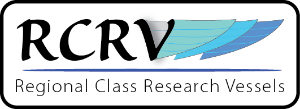Overview
Every data value provided by CORIOLIX is accompanied by a set of quality flags.
These flags are a combination of automated and manually-assigned flags. A brief summary
of the flags are provided below for quick reference. Complete details may be found in
the CORIOLIX QA/QC Manual.
CORIOLIX quality flags are based on IOOS QARTOD quality control flag conventions.
QARTOD is the Quality-Assurance/Quality Control of Real-Time Oceanographic Data, a set of manuals by the U.S. Integrated Ocean Observing System (IOOS).
The CORIOLIX flag set includes some of the key flags defined in QARTOD, plus a few additional flags such as "Port Status Test".
More information about QARTOD flags is available here:
U.S. Integrated Ocean Observing System, 2020. Manual for the Use of Real-Time Oceanographic Data Quality Control Flags, Version 1.2. 24 pp.
https://doi.org/10.25923/w8y6-d298
Flag Set Format
The CORIOLIX quality flag set is a string of 30 digits.
Each digit in the string may take values of 0 (not applicable), 1 (pass), 2 (unknown), 3 (suspect), 4 (fail), or 9 (missing).
The position of the digit within the flag set indicates which flag test it represents.
An example quality flag set might be:
11123114322222222222222222222
The above quality flag set indicates that the the Gap Test (the leftmost digit, in position 0) passed (1), however the Spike Test (the digit in position 7) failed (4).
Flag Changes
QA/QC happens at various stages throughout the data lifecycle. As a consequence, quality flags may change throughout a cruise.
Combined Flags
During data processing, such as temporal binning, it is sometimes necessary to combine the flags from different data points.
In the case of binning, quality flags representing the binned data are a composite of all of the flags from that bin.
To generate the combined flag set, the largest value found in each flag position is used.
For example:
| Flag Set 1 | 111144000022222222111100000000 |
| Flag Set 2 | 121122000033222222114400000000 |
| Flag Set 3 | 321122000033222222114400000000 |
| Combined | 321144000033222222114400000000 |
Flag Values |
| Value |
Meaning |
|
Definition |
| 0 |
Not Applicable |
|
The QC test is not applicable to these data. |
| 1 |
Pass |
|
Data have passed the QC test. |
| 2 |
Unknown / Not Evaluated |
|
Quality was not evaluated, not available, or unknown. |
| 3 |
Questionable / Suspect |
|
Data are either suspect or may be of high interest to providers and users, the flag is used to draw operator review. |
| 4 |
Fail |
|
Data have failed the QC test. |
| 9 |
Missing Data |
|
Data are missing. |
|
Flag Types
The flag position is counted from left to right with the count starting at zero.
|
| Position |
Name |
QARTOD |
Definition |
| 0 |
Gap Test |
True |
If the most recent datapoint was measured and received within an expected time window and has the correct time stamp, yes (1), no (4). |
| 1 |
Syntax Test |
True |
If the message is structured properly. Was the full data message received without any indicators of flawed transmission such as parity errors? a.) Expected number of characters, b.) passes standard bit check, cyclic redundancy check, yes (1), no (4). |
| 2 |
Gross Range Test |
True |
If the data value is within the sensor min/max as currently defined by the sensor's operating range, yes (1), no (4). |
| 3 |
Global Range Test |
True |
If the data point falls within the global range for all seasons (1), if not (3). There is no fail (4) given the dynamic range for coastal waters. |
| 4 |
Local Range Test |
True |
If the data point falls within the local range for all seasons (1), if not (3). There is no fail (4) given the dynamic range for coastal waters. Additionally, this should be considered an actively evolving definition as additional data is collected on each vessel during operations. |
| 5 |
Sensor Status Test |
False |
If the sensor is currently undergoing maintenance or cleaning. Various categories exist including: in use (1), not in use (3), calibration in progress (4), maintenance in progress (4), repair in progress (4), testing in progress (4), unavailable for use (3). |
| 6 |
Pump On Flag |
False |
For flowthrough sensors, is the pump that supplies the seawater on (1) or off (4)? |
| 7 |
Port Status Test |
False |
If the vessel is located at a known port location (3) or not in a known port location (1). |
| 8 |
Filter Blank Flag |
False |
If applicable, when a filter blank is being run data will be flagged. Filter blank on (3), filter blank off (1). |
| 9 |
Derived Data Time Check |
False |
For derived data products, if the time difference between the input data (from different sources) is larger than the predefined time interval, yes (4), no (1). |
| 10 |
Unused |
False |
Reserved for future use. |
| 11 |
Unused |
False |
Reserved for future use. |
| 12 |
Unused |
False |
Reserved for future use. |
| 13 |
Unused |
False |
Reserved for future use. |
| 14 |
Unused |
False |
Reserved for future use. |
| 15 |
Unused |
False |
Reserved for future use. |
| 16 |
Unused |
False |
Reserved for future use. |
| 17 |
Unused |
False |
Reserved for future use. |
| 18 |
Unused |
False |
Reserved for future use. |
| 19 |
Unused |
False |
Reserved for future use. |
| 20 |
Unused |
False |
Reserved for future use. |
| 21 |
Unused |
False |
Reserved for future use. |
| 22 |
Unused |
False |
Reserved for future use. |
| 23 |
Unused |
False |
Reserved for future use. |
| 24 |
Unused |
False |
Reserved for future use. |
| 25 |
Unused |
False |
Reserved for future use. |
| 26 |
Unused |
False |
Reserved for future use. |
| 27 |
Unused |
False |
Reserved for future use. |
| 28 |
Unused |
False |
Reserved for future use. |
| 29 |
Unused |
False |
Reserved for future use. |





